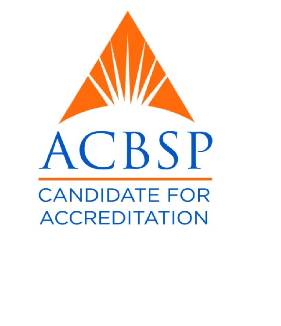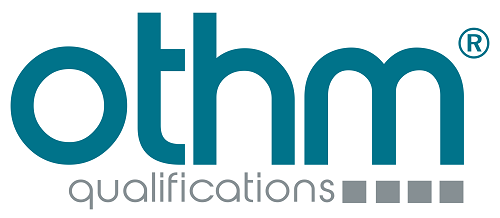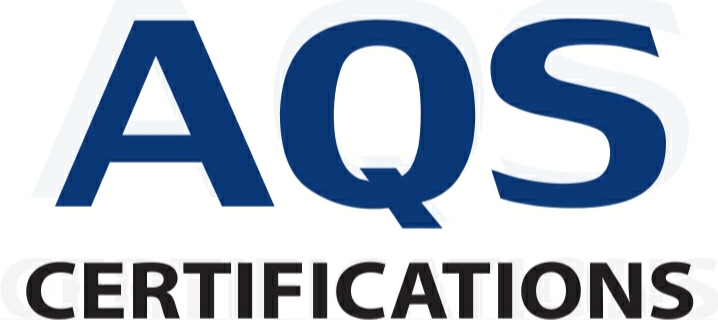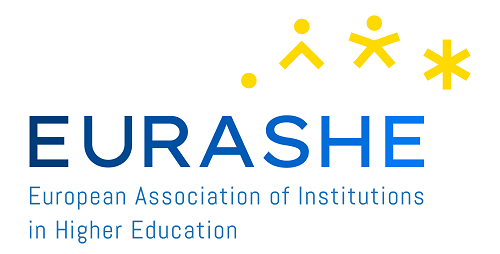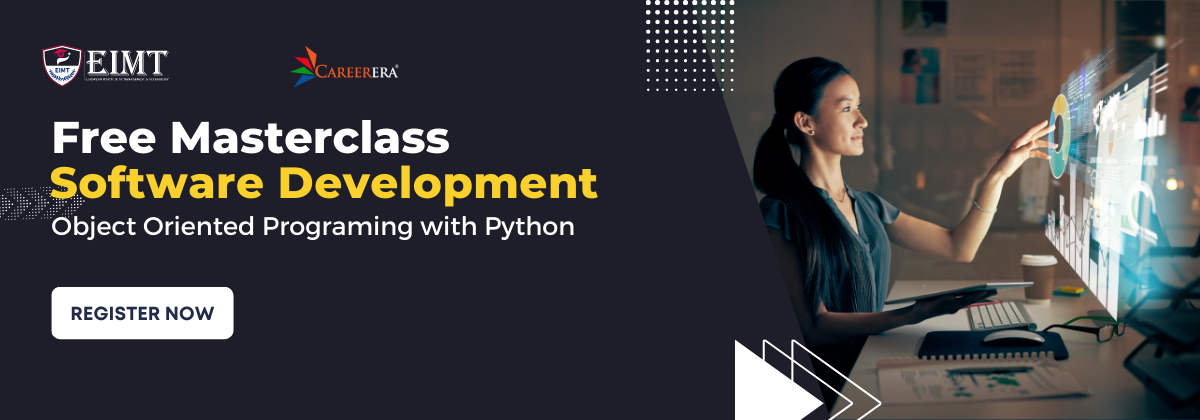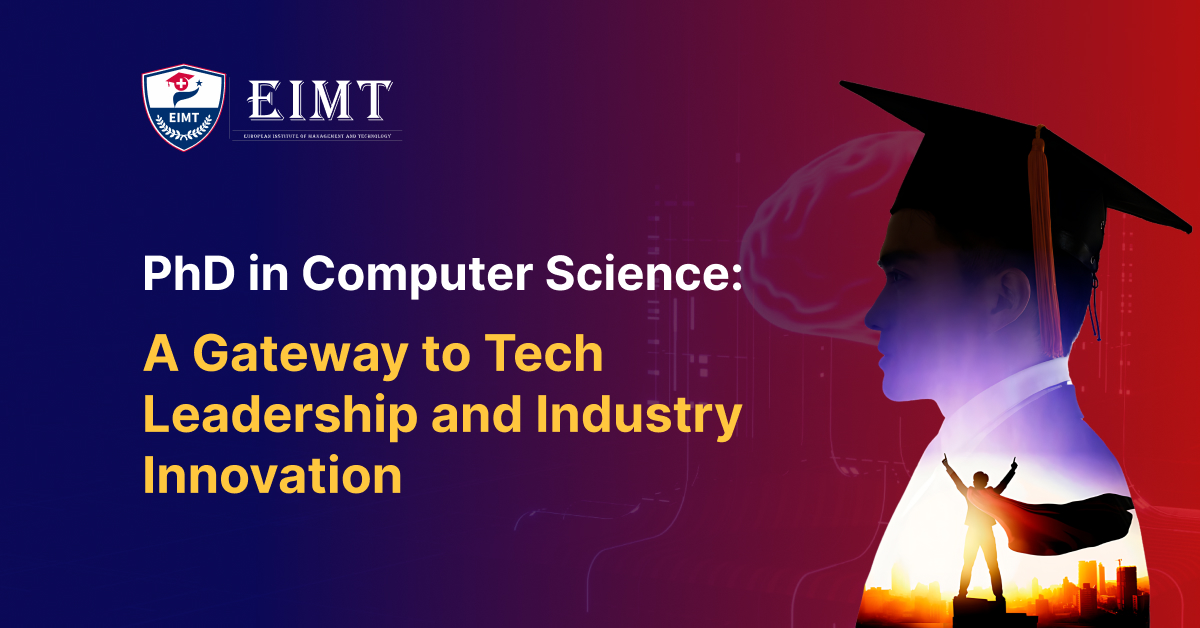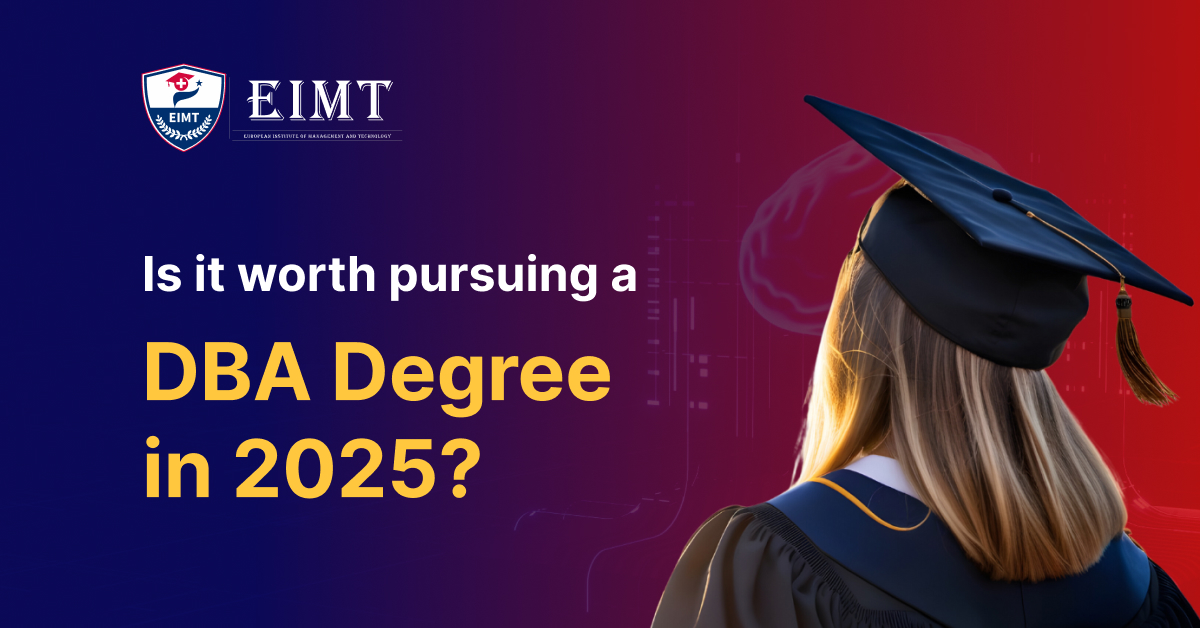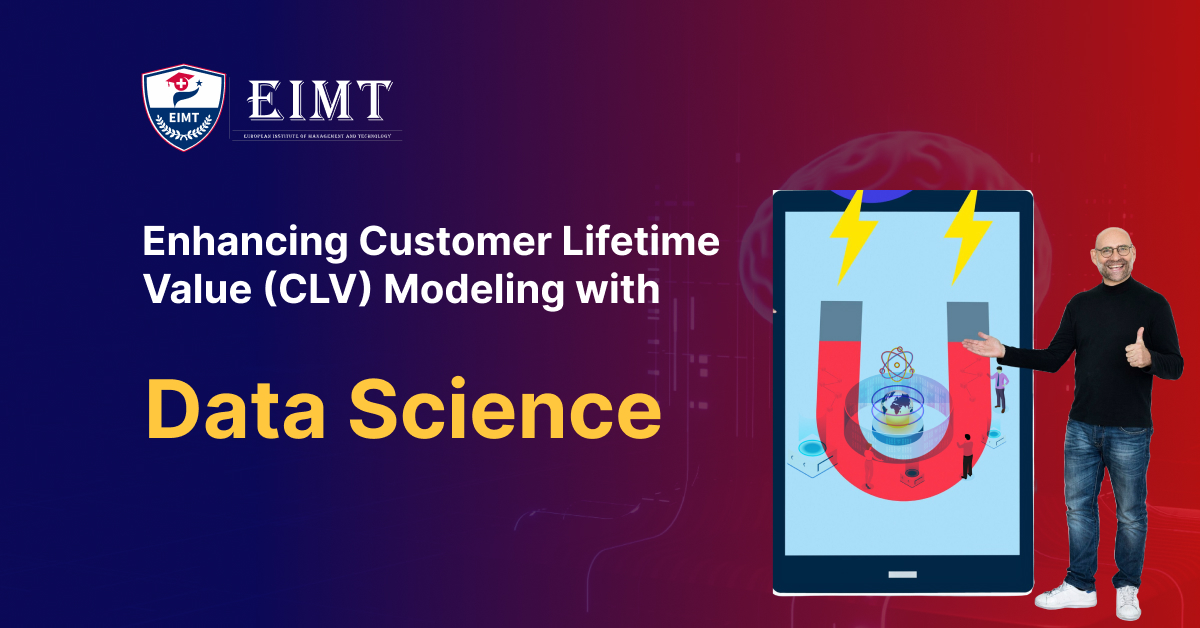Begin your journey of revolutionising the way humans interact with technology and become a valuable asset to the computer science world that propels the digital world with a Bachelor's in Computer Science degree programme. This career path will endow you with a wide range of skills and abilities that are significantly transferable across multiple fields and industries. The EIMT Bachelor's in Computer Science programme will not only equip students with the principles and concepts of Computer science but also instil and help develop capabilities like problem-solving, analytical and critical thinking abilities, etc that are crucial and considered valuable across an array of occupations and industries.
Bachelor's in Computer Science, France
- Join your Ultimate Business Degree programme today
Accreditations
Accredited by major accrediting bodies.
Alumni Network
A strong network of 1000+ alumni worldwide.
Scholarships
Merit based scholarship to students
International Students
From 20+ Countries
Programme Highlights

-
 36 Months
36 Months -
 Focused & Unique Curriculum.
Focused & Unique Curriculum. -
 Explore and earn industry-demand skills
Explore and earn industry-demand skills -
 Develop real-life problem-solving abilities.
Develop real-life problem-solving abilities. -
 Industry Collaborated programme
Industry Collaborated programme -
 Practical Project-Based Learning
Practical Project-Based Learning -
 International Networking Opportunities.
International Networking Opportunities. -
 Qualified Industry Experienced Faculties.
Qualified Industry Experienced Faculties. -
 Multicultural Exposure
Multicultural Exposure -
 State-of-the-Art Campus
State-of-the-Art Campus
Get FREE 1:1 Counselling

Bachelor's in Computer Science
With the world's growing dependence on technology and the substantial demand for skilled professionals, the Computer Science field has grown to an absolute prominence and a profound academic discipline. EIMT's Bachelor's in Computer Science programme is developed to offer students a holistic comprehension of the tools and techniques essential in driving the field towards growth and innovation. The programme is a good fit for those passionate about computers and software where they will gain exposure to the fundamentals of computer science, operating systems, coding and number systems, hardware and software, arrays and functions, etc extensively. The programme focuses on students building practical abilities through an experiential hands-on learning environment.
 >
>

About EIMT
Where Your Future Begins.
EIMT is a leading professional educational institution that commits to redefining the paradigm of education on a global scale. We engage students from across the globe in a milieu that encourages not just learning, but the holistic development of skills and competencies essential for leadership in the dynamic landscapes of global industries.
EIMT leverages state-of-the-art technology to deliver a flexible education model. This approach empowers our students to engage with their studies on their terms, facilitating a balance between academic pursuits and professional commitments. EIMT has been focused on a core mission: Excellence in higher education accessible through its network of schools.
Nestled in the vibrant city of Châteauroux, our France Campus embodies our commitment to excellence in education. With modern facilities, a range of student services, and cutting-edge technology, we provide a dynamic learning environment. Our tailored study programmes align with industry demands, empowering students with future-ready skills. We prioritize fostering an environment where students can explore diverse interests and specialities with confidence. At EIMT, our comprehensive campus support services ensure that every student experiences a seamless and successful academic journey. Join us and thrive in an enriching educational experience that goes beyond the classroom.
Accreditations
Committed to Quality, Dedicated to You.
Why Choose Bachelor's in Computer Science at EIMT France?
Quality teaching & high achievement rates

Updated and Relevant Curriculum
At EIMT, students will gain exposure to practical-based learning opportunities and the most up-to-date information to enable students. Students will gain innovative and creative thinking abilities for future growth.

Experiential Learning
Cultivate practical competencies through the application of skills and knowledge in practical hands-on projects. Develop market-ready skills and build insights based on scientific research.

State-of-the-Art Classrooms
Make the most of the optimal environment designed to offer a seamless learning experience. Our classrooms are furnished with the latest technology, digital amenities, advanced tools and infrastructure for an effective course engagement.

Strategic Campus Locations
Get exposure to some of the world's top companies and investors, where you can leverage the opportunity for internship or employment after your course completion.

Gain Technical and Practical Competencies
The Bachelor's in Computer Science at EIMT covers all practical and technical aspects of computer science, enabling students with a robust foundation for a thriving career in the field.
Who is a Bachelor's in Computer Science degree programme for?
Transforming Top Professionals into Thought Leaders.
- High School Graduates: Students who have completed their secondary education and wish to pursue an undergraduate degree in computer science.
- Aspiring Software Developers: Individuals interested in learning programming languages, software development, and application design to build a career in software engineering.
- Future IT Professionals: Those who want to gain a comprehensive understanding of computer systems, networks, and information technology to enter the IT industry.
- Technology Enthusiasts: Students passionate about technology and innovation who seek to develop skills in areas such as artificial intelligence, machine learning, and robotics.
- Data Science Aspirants Individuals aiming to specialize in data analysis, big data, and data-driven decision-making to become data scientists or analysts.
- Cybersecurity Learners: Students who wish to focus on cybersecurity, learning how to protect systems and data from cyber threats and attacks.
- Game Developers: Those interested in the gaming industry who want to learn game design, development, and programming to create engaging and interactive games.
- Future Researchers and Academics: Individuals planning to pursue advanced studies or a career in research, focusing on exploring and contributing to new developments in computer science.
Programme Outcomes
Proficiency in Programming and Software Development
Develop skills in software engineering, including software design, development, testing, and maintenance.
Strong Analytical and Problem-Solving Skills
Cultivate the ability to think critically and solve complex business problems.
Understanding of Computer Systems and Architecture
Understand how software interacts with hardware and how to optimize system performance.
Knowledge of Database Management
Understand data modeling, database normalization, and data warehousing.
Foundational Knowledge in Cybersecurity
Learn to protect systems, networks, and data from security threats and vulnerabilities.
Experience with Web Development and Internet Technologies
Understand web protocols, APIs, and web services.
Competence in Data Science and Analytics
Gain skills in data visualization and the use of data analytics software.
Exposure to Artificial Intelligence and Machine Learning
Apply machine learning techniques to solve real-world problems.
Project Management and Team Collaboration
Enhance teamwork and collaboration skills by working on group projects and assignments.
Preparation for Professional Certifications and Further Studies
Establish a solid foundation for advanced studies in computer science or related fields.
Bachelor's in Computer Science Career Path and Opportunities
Bachelor's in Computer Science graduates will enjoy a wealth of opportunities. With their business administration and managerial skills and degrees that display their abilities, they will enjoy high employability in the job market.
-
Computer Science Teacher
TThose who have a passion for training and teaching can go on to become a teacher in Computer Science and remain an influential figure in shaping the careers and future of hundreds of students.
-
Information Security Analyst
This is another popular job role that demands a degree in Computer Science. If you are someone who can handle and manage several security breaches in the organisation by monitoring the network systems and investigating when security breaches occur, this job would be a good fit.
-
Software Quality Assurance Tester
This professional is an expert in ensuring the organisation's websites/software/ applications run smoothly by running a variety of automated and manual tests during the development stage of the product. If you are enticed by the task of handling several responsibilities including testing, developing, and implementing test cases, documenting test results, and researching new technologies, here is your ideal job.
-
Web Developer
Your Bachelor's in Computer Science degree can also land you an exciting job of building and designing websites and applications for any organisation. You may also take the more exciting verticle-like Game development for computers, social/online games, game consoles, arcade games etc.
-
Business Intelligence (BI) Analyst
A BI Analyst is another exciting and in-demand job for Computer Science degree holders. Their job involves assisting enterprises to make informed and sound business decisions by providing data-driven information. Their expertise will also lead to various positions like Managers, business intelligence consultants or architects, managers, and several other senior positions.
-
Software Developer
If you are interested in Coding, you may leverage your programming skills to create new software and applications and improve the existing ones. Their job involves designing and writing code for building mobile applications, operating systems, video games, etc.
-
Computer Technical Specialist
Your job as a Technical Specialist includes administering, testing, and implementing computer databases, by leveraging your expertise in database management systems.

How It’s Work
Join Bachelor's in Computer Science at EIMT France in 6 Simple Steps


Preparing for Examinations
Pursuing a course in the france begins with competitive and rigorous exams such as GRE/GMAT for postgraduate studies and IELTS or TOEFL for English proficiency. Some programs do not require GRE/GMAT. Thorough preparation is vital as these exams significantly influence university admissions.


University Application Process
The application process involves submitting academic transcripts, letters of recommendation, a statement of purpose, and exam scores. Meeting application deadlines and following specific university guidelines are critical to success.


Figuring Out Your Finances
Planning your finances is essential, considering options like scholarships and loans, though the latter may come with high-interest rates.


Visa Process
Applying for a student visa entails presenting the necessary documentation, attending an interview, and paying a fee. It is advisable to start this process early to avoid delays.


Booking Your Travel
Early travel bookings are recommended, as costs can be high, especially during peak seasons. Consider budget airlines and travel packages to minimize expenses.

Finalizing Your Stay
The cost of accommodation varies based on location and preferences. Exploring housing options early allows for a more budget-friendly selection, whether choosing university housing or private rentals.
The Curriculum
Modules during your first year
Semester 1 - 28 ECTS
-
Computer Science Basics
This course is designed to provide a level appreciation program for an common man. After completion, the user can use the computer for the purpose of preparing personal/business letters, advice messages and the Internet (the web), sending e-mails, using internet banking services, etc. It will be also helps with PC installation programs. This helps small business owners, housewives Manage their small accounts using a computer and enjoy the world of information Technology.
-
Digital Electronics
The purpose of this course is to teach the principles of digital electronics. This course covers a variety of topics, including Boolean algebra, gate logic, logic circuits, flip-flops, registers, arithmetic circuits, counters, interfacing with analog devices, and computer memory.
-
Computer Science Applications
In this module, you will learn about the importance of computer science and what are the applications that uses computer.
-
C Programming
This module introduces the programming language C. In this paper, a student learns to understand the logic of a problem and write structured C programs.
-
Introduction to Windows, its Features, Application
In this module, we shall discuss at length about the history and development of Windows along with all its versions till date, Windows operating system, applications and important commands.
-
Computer Organization Principles
The purpose of this course is to study and understand the structure of computers and which function of each part. It gives a brief description of microprocessors and their types. It introduces assembly language to microprocessors now on the market.
-
Foreign Language
You can choose your desired foreign language out of Spanish, Chinese, German, Portuguese, English, Hindi, Japanese, Dutch etc.
-
Technical Communication
In this module, you will learn to understand the correct use of English and improve the communication skills of the students.
Semester 2 - 28 ECTS
-
Fundamental of LINUX
Linux Introductory module provides students with an in-depth introduction to Linux™ for those new to the Linux environment. Students will learn how to manage files and directories, use the vi editor, work with the Linux security system to protect files and programs, work with the Linux shell to control the flow and processing of data through pipelines, design and write programs a shell of extreme complexity and manage multiple processes at the same time to maximize Linux usage.
-
Database Management Systems
Databases are an important part of real life application systems. This module will make the student understand various problems related to the design and implementation of database systems. The student will learn physical and logical database design, database architecture, relationships, architecture and network models. Students will be familiar with the use of SQL and PL/SQL concepts. -
Introduction to Programming Concepts
This course introduces the student to object-oriented programming through an exploration of the concepts of specification and program design, algorithm development, coding, and testing using modern software development environments. Students learn to program in a high-level programming language. Topics covered include algorithmic foundations, flow diagrams, problem solving, programming concepts, classes and methods, control structures, arrays and strings.
-
Computer Graphics
This module focuses on interactive and non-interactive 2D and 3D graphics. This module studies the principles of creating and displaying 2D and 3D synthetic images. In this module, topics include geometric shapes, 3D visualization and projection, lighting and shading, color, and the use of one or more technologies and packages such as OpenGL and Blender.
-
Software Design and Patterns
In this module, the use of design software is introduced. Topics included design process (creative process, design and practice), architectural principles, constraints, object-oriented design principles and Program idioms will be discussed. This course will use a long-term project to give students real life hands-on experience and models from building software systems.
-
C++ Programming
Give the student an initial foundation in the world of C++ development, with emphasis and learn basic programming principles, from I/O operations, to handling variables, to speed management capabilities and implementation of OOP principles like classes and inheritance e.g and other advanced features such as working with files and basic network functions by using TCP and UDP protocols.
-
Foreign Language
You can choose your desired foreign language out of Spanish, Chinese, German, Portuguese, English, Hindi, Japanese, Dutch etc.
-
Communication Skills
At the end of this module, the student will acquire the soft skills necessary to work together and as a team player and will add value to any business / organization. The module will enhances the individual skill sets.
Modules during your Second year
Semester 3 - 30 ECTS
-
Media Technologies
Students learn to use computing and multimedia for the film and media industry, the Internet and various production developments, audio and visual media, and film production skills. The media technology curriculum also focuses on creative research and understanding of science and technology.
-
Artificial Intelligence
This course covers various aspects related to machine learning and probability theory. In addition, students will learn natural language and computer vision to master the science of using machines to perform tasks that require human intelligence.
-
Data Mining
Data mining studies algorithms and mathematical techniques that allow computers to find patterns and patterns in databases, make predictions and forecasts, and generally improve their performance by interacting with data. It is now seen as a key part of a general process called Knowledge Discovery that deals with extracting useful knowledge from raw data. Knowledge discovery techniques include data selection, cleaning, encryption, the use of various mathematical techniques and machine learning, and visualization of artifacts. This course will cover all these questions and illustrate the whole process with examples. Special attention will be given to machine learning techniques as they provide good tools for knowledge discovery.
-
Distributed Systems
The primary objective of the module is to teach the fundamental concepts and working details of distributed systems and the underlying technologies. Topics include distributed systems architectures, processes, communication and synchronization, consistency and replication, fault-tolerance and security.
-
Network Security
You cover topics such as current and future Internet standards, programming networks, and securing the systems. We offer strong value through laboratory programs in software engineering and computer networks; Security lab work involves a special environment where attackers’ methods can be detected and stopped using special security tools.
-
Web Application Development
This course focuses on the design and development of web applications using various models programming languages and tools. Students will be exposed to online applications walking development. Class projects include business-to-market (B2C) development and business-to-business (B2B) applications, among others.
-
Foreign Language
You can choose your desired foreign language out of Spanish, Chinese, German, Portuguese, English, Hindi, Japanese, Dutch etc.
-
Internship Report
A complete detailed Internship report needs to be submitted for the project/business you have worked upon during/after your first year.
Semester 4 - 26 ECTS
-
Advanced Programming Techniques
This module begins with explaining object-oriented concepts, including abstraction, encapsulation and polymorphism in the context of the Java programming language. Then, focus shifts to the details of the Java architecture database, especially collections and efficient disk database and file access etc.
-
Web Mining and Graph Analytics
Web Mining and Graph Analytics covers aspects of web mining, fundamentals of machine learning, text mining, clustering, and graph analysis. This includes learning the basics of machine learning algorithms, how to evaluate algorithm performance, feature management, content extraction, impact analysis, distance metrics, the basics of clustering algorithms, how to evaluate cluster performance and the basics of graph analysis algorithms. -
Network Forensics
This course provides an introduction to techniques and methods related to digital forensics in a networked environment. Students will develop an understanding of key concepts related to topologies, protocols, and tools necessary to conduct research in network environments. Students will learn the importance of network forensics, forensic analysis, digital evidence analysis, and documentation of investigative processes. The course will include presentations and laboratory activities to reinforce the practical applications of the course and will require an independent research paper related to the topic of the course.
-
Advanced Database Management
Candidates will get a detailed explanation of the relationship process and how to do it. Module will also develop candidates’ knowledge of current topics and advances in interactive database systems, object-oriented programming and XML database systems. In addition, the candidates will have to check the new architectures for database management systems and further develop their understanding of the impact Emerging data security standards may contain resources provided by future data security controls system.
-
Special Topics in Computer Science
The special series covers some of the most recent and promising research directions. These are often examples of new courses we develop.
-
Biometrics
In this module, you will learn about Biometric fundamentals, Biometric technologies – Biometrics vs traditional techniques , Finger-scan – Facial-scan – Irisscan – Voice-scan – components, working principles, competing technologies, Signature-scan – Keystrokescan, Standards in Biometrics – Assessing the Privacy Risks of Biometrics – Designing Privacy – Sympathetic Biometric Systems etc.
-
Communication Skills
At the end of this module, the student will acquire the soft skills necessary to work together and as a team player and will add value to any business / organization. The module will enhances the individual skill sets.
Modules during your Third year
-
Visual Programming & Visual Basics (4 ECTS)
Visual Basic is a programming language that allows rapid development of the Microsoft Windows user interface. Students will learn to use Visual Basic .NET programming, tools and techniques to create user-friendly Microsoft Windows applications.
-
Software testing (4 ECTS)
The software testing process consists of manual, automated and SQL testing as well as programming.
-
Software Engineering (4 ECTS)
This course introduces modern software engineering techniques and analysis software life cycle, including software specification, design, implementation, testing and maintenance. This course is for anyone who wants to learn to understand requirements & define solutions for complex systems.
-
Introduction to Web Technology (4 ECTS)
Students will to learn create dynamic and interactive websites using JavaScript. Advanced HTML, CSS, and JavaScript are the basics of developing client-side web pages and students will learn how to use the technology for their purposes. Students begin working on the distribution section development of scripts and web applications using PHP and MySQL.
Data Science Specialization (28 Credits)
-
Foundations
In this module, you will learn about Introduction to programming using Python (Loops, functions, methods, operators), Introduction to programming using R (documentation, data types, data structure, loops, algorithms), Database Management System using My SQL (DBMS, SQL accessing, MySQL, ETL) etc.
-
Data Analysis
In this module, you will learn about Statistics For Data Science (Probability distribution, Normal distribution, Poisson’s distribution, Type 1 and Type 2 errors, Hypothesis testing), Exploring Data Analysis (reading, cleaning data, Seaborn, matplotlib, Univariate and Multivariate statistics) etc.
-
Machine Learning Techniques
In this module, you will learn about Supervised Learning – Regression, Ensemble Techniques, Machine Learning Model Deployment using Flask, Unsupervised Learning, Supervised Learning – Classification etc.
-
Data Visualization
In this module, you will learn about Data Visualization Using Tableau, Working with Continuous and Discrete, Data Using Filters, Data Visualization Using Google Data Studio, Using Calculated Fields and parameters, Creating Tables and Charts, Data Visualization Using Power Bi, key features of Power BI workflow etc.
-
Introduction To Artificial Intelligence
In this module, you will learn about Time Series Forecasting, Text Mining And Sentimental Analysis, Introduction to Natural Language Processing, Reinforcement Learning, Introduction to Neural Networks and Deep Learning, Computer vision etc.
-
Hacking Wireless Networks, Mobile platforms & IoT hacking
In this module, you will learn about Wireless Concepts, Wi-Fi Authentication modes, WEP vs.WPA vs.WPA2, WEP issues, Wi-Fi Sniffer, Mobile attack vectors, Apps and boxing issues, Hacking with z ANTI, Hacking iOS, Mobile Pen Testing, IoT Concepts, Challenges of IoT, IoT threats, IoT hacking tools etc.
Cyber Security Specialization (28 Credits)
-
Fundamentals of Cyber Security, Linux & Networking
In this module, you will learn about What is Cybersecurity?, What is the Impact of Cybercrime?, Difference Between Linux and Windows, Basic commands, Linux Boot process, b Scheduling Tasks, Advanced Shell Scripting, Linux Networking, Information over open source projects etc.
-
Ethical Hacking, Footprint & Reconnaissance
In this module, you will learn about Ethical Hacking Concepts, Scope and limitation sof Ethical Hacking, Defense-in-Depth, Why penetration testing?, Footprinting through Search Engines, Footprinting through Web Services, Website Footprinting, Mirroring the entire website, Email Footprinting, Network Footprinting, Footprinting Tools etc. -
Enumeration, Vulnerability Analysis, System Hacking
In this module, you will learn about Enumeration Concepts, Net BIOS Enumeration, LDAP, NTP, SMTP, DNS, Vulnerability Assessment Concepts, Vulnerability Scoring Systems, System Hacking Concepts, Password cracking tools, NTFS Data Stream, What is steganography?, Covering tracks tools etc.
-
Malware Threats, Network Attacks, Social Engineering
In this module, you will learn about Malware Concepts, Wrappers, Crypters, Stages of virus life, Ransomware, Malware Analysis, What is Social Engineering?, Insider Threats, Anti-phishing tool bar, Identity Theft, Wireless Encryption, Wireless Threats, Denial-of-Service attack, Wi-Fi Sniffer, How to blue Jack a victim etc.
-
Denial-of-Service, Honeypots & Hacking Web Servers
In this module, you will learn about DoS/DDoS Concepts, HTTP GET/POST and slow loris attacks, Fragmentation attack, Peer-to-peer attacks, IDS, Firewall and Honeypot Concepts, Evading IDS, Detecting Honeypots, Web Server Concepts, Web Server Attacks, Web cache poisoning attack, Website defacement, Website mirroring etc.
-
Cloud security & Cryptography
In this module, you will learn about Cloud Computing Concepts, Cloud Computing Threats, Cloud Computing attacks, Domain Name System (DNS) attacks, Wrapping attack, Session Hijackingusing session riding, Cloud security control layers, Cloud Penetration Testing, Cryptography Concepts, Cryptography Tools, Disk Encryption, Cryptanalysis etc.
Full Stack Specialization (28 Credits)
-
Introduction & Preparatory
In this module, you will learn about Program Structure & Basic Principles, course jounrey mapping, Programming Constructs – Loops, Functions, Arrays, An Introduction to Version Control, Git, Command-line Scripting, Basic HTML, CSS etc.
-
Front End Development
In this module, you will learn about HTML & CSS Interaction, CSS: Styling, Selectors, Box Model, Border, Margin, Padding, Bootstrap 3,4,5, JavaScript Fundamentals, Hoisting, Callbacks, Promises, Asynchronous JavaScript, DOM Manipulation, JSON, AJAX Calls, Communication with Server, Event Listeners, Local and Session Storage, Advanced JavaScript , JAVASCRIPT FRAMEWORKS – Angular or react etc.
-
Back End Development
In this module, you will learn about Object-Oriented Paradigms of Java Programming, Design – Interfaces| Abstract Classes | polymorphism , Arrays, Strings, Stacks, Queues, Linked Lists, Binary Trees and Binary Search Trees, Tree traversals, Graphs, Dynamic Programming, Hashing Algorithms, Recursion, Searching and Sorting Algorithms, Greedy Algorithms, Tables, Views, SQL Queries – Simple & Complex, JSP & Servlets, Servlet Lifecycle, Rest APIs, Backend Development Using Springboot Framework etc.
-
Mobile Application Development React Native
In this module, you will learn about Understanding Native Mobile Apps Development, Android fundamentals – activities, views, layouts, resources, manifest, iOS fundamentals – Storyboard, Segues, Views, View Controllers, Layouts, Installing the React Native CLI, Installing IDE: VS Code, React Native Elements: React Native UI Toolkit, Native Modules and APIs etc.
-
Cloud Computing & Devops
In this module, you will learn about Basics of Virtual Machines – Process Virtual Machines, Virtualization Management, Comprehensive Analysis Resource Pool – Testing Environment, virtualization of CPU, Memory and I/O devices, Cloud deployment models: public, private, hybrid, community, Architectural Design Challenges – Public Cloud Platforms: GAE, AWS, Programming models, cloud security, cloud & devops etc.
Artificial Intelligence & Machine Learning (28 Credits)
-
Foundations
In this module, you will learn about Python Basics, Python Functions and Packages, Working with Data Structures, Arrays, Vectors & Data Frames, Jupyter Notebook – Installation & function, Pandas, NumPy, Matplotlib, Seaborn, Descriptive Statistics, etc.
-
Machine Learning
In this module, you will learn about Supervised Learning – Linear Regression, Multiple Variable Linear Regression, Logistic Regression, Naive Bayes Classifiers, K-NN Classification, Support Vector Machines, Unsupervised learning – K-means Clustering, Hierarchical Clustering, Dimension Reduction-PCA, Ensemble Techniques, Recommendation Systems etc. -
Introduction to Neural Networks and Deep Learning
In this module, you will learn about Supervised Learning – Linear Regression, Multiple Variable Linear Regression, Logistic Regression, Naive Bayes Classifiers, K-NN Classification, Support Vector Machines, Unsupervised learning – K-means Clustering, Hierarchical Clustering, Dimension Reduction-PCA, Ensemble Techniques, Recommendation Systems etc.
-
Introduction to Sequential data
In this module, you will learn about RNNs and its mechanisms Vanishing & Exploding gradients in RNNs LSTMs – Long short-term memory GRUs – Gated recurrent unit LSTMs Applications Time series analysis LSTMs with attention mechanism Neural Machine Translation Advanced Language Models: Transformers, BERT, XLNet Computer vision etc.
-
Introduction to GANs & its Applications
In this module, you will learn about Introduction to GANs, How GANs work?, DCGANs – Deep Convolution GANs, Introduction to Reinforcement Learning (RL) RL Framework Component of RL Framework Examples of RL Systems Types of RL Systems Q-learning, LANGUAGES AND TOOLS- Python ,Python ML library ,Scikit-learn ,NLP library ,NLTK ,Keras, Pandas Numpy ,Scipy, Matplotlib ,TensorFlow etc.
EIMT Recent/Upcoming Events
Latest From Our Blog
Stay Connected !! To check out what is happening at EIMT read our latest blogs and articles.
Frequenlty Asked Questions
Your Questions, Answered.
-
What makes the Bachelor's in Computer Science program at EIMT France Campus unique and different from others?
Our rigorous academic curriculum, experiential learning opportunities, and strong emphasis on global perspectives make our program unique and distinct from others. Additionally, our location in France provides unparalleled access to Europe's business landscape, making it an ideal choice for aspiring business leaders.
-
What are the admission requirements for the Bachelor's in Computer Science program?
Prospective students to the Bachelor's in Computer Science programme at EIMT France must have completed their senior secondary schooling/ high school diploma/equivalent international qualification. They should be proficient in English and have a background in computer science fundamentals and Mathematics.
-
Can international students apply to the Bachelor's in Computer Science program at France Campus?
EIMT welcomes every interested individual around the world to the Bachelor's in Computer Science programme and all the other degree programmes offered by us. We take pride in our diverse strengths, which also enriches the learning experience of our students.
-
What is the duration of the Bachelor's in Computer Science program at EIMT France?
The Bachelor's in Computer Science programme at EIMT will take three years to complete.
-
What are the career prospects for graduates of the Bachelor's in Computer Science program?
Upon completing the Bachelor's in Computer Science, students can venture into various career opportunities, like
- Software Engineer
- Information Security Analyst
- Software Quality Assurance Analyst
- Web Designer
- UX & UI Designer
- Web Developer
- Software Developer
- Mobile App Developer
- Computer Technical Specialist
- Business Intelligence (BI) Analyst
-
Are students allowed to pursue internships during the BCS Programme?
Yes, As practical experience is a key component of our Bachelor's in Computer Science programme, students will be allowed to go for the internship programme. It will be made open during the second half of the programme. We thus encourage students to explore internship opportunities to gain real-world experience and expand their professional network. Students will be given intensive support and guidance in securing internships that align with their career goals.
-
Is there a specialisation option during the Bachelor's in Computer Science programme at EIMT?
The Bachelor's in Computer Science programme at offers an extensive curriculum that also features specialisation courses to enable students to develop skills and knowledge in their area of interest. These specialisation papers allow students to tailor their studies to their interests and career goals.
-
Is there any financial aid available for international students in the Bachelor's in Computer Science program?
Yes, as part of our initiative to make learning less burdensome, EIMT offers a discounted fee structure for students for a certain stipulated time. Students may also seek scholarships that are offered by the French government, and other private companies. We encourage students to explore other available options and contact our Student support services for easy navigation through the process.
Do you have any query about studying at EIMT, France?
Your Questions, Our Answers, One Conversation at a Time.
Discover scholarships.. Take the first step towards realizing your academic aspirations with our scholarship discovery hub
Get Free Counselling
Schedule a 1-1 career counselling session with our experts and get all your queries answered






